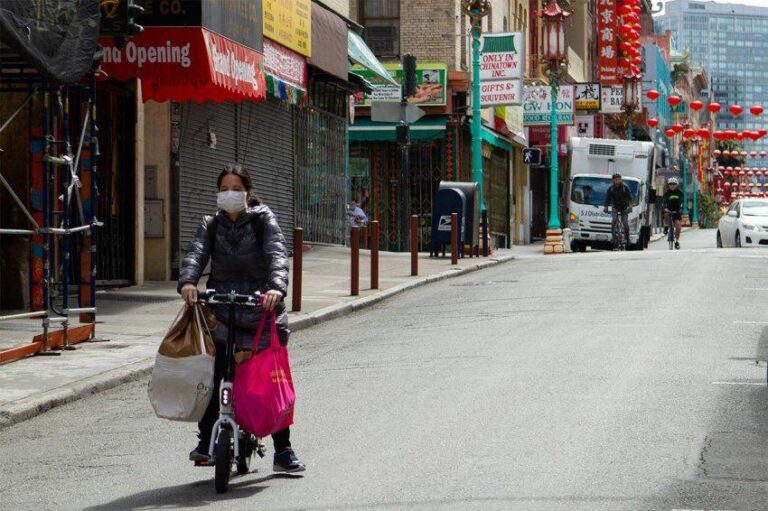Confronting Anti-Asian Racism in San Francisco: Current Challenges and Community Responses
Escalating Anti-Asian Incidents Disrupt San FranciscoŌĆÖs Community Harmony
San Francisco, celebrated for its rich cultural mosaic, is currently facing a disturbing increase in hate crimes targeting its Asian American population. This surge not only inflicts harm on individuals but also undermines the social cohesion that has long defined the cityŌĆÖs neighborhoods. Recent data from local authorities reveal a significant uptick in verbal harassment, vandalism, and physical assaults, with elderly residents and small business owners in areas like Chinatown and the Richmond District bearing the brunt of these attacks.
Several underlying issues contribute to this alarming trend:
- Communication challenges due to limited English proficiency hinder victims from reporting incidents and accessing support.
- Heightened social isolation, intensified by ongoing pandemic restrictions, exacerbates vulnerability.
- Persistent xenophobic narratives fueled by misinformation circulating on social media platforms.
- Inadequate funding and resources dedicated to preventing hate crimes and supporting affected communities.
| Neighborhood | Incidents Reported in 2023 | Increase Compared to 2022 |
|---|---|---|
| Chinatown | 42 | +35% |
| Richmond | 28 | +25% |
| Sunset | 15 | +15% |
Advocates Demand Improved Police Training and Accountability
In response to the rise in anti-Asian hate crimes, community advocates are urging law enforcement agencies to implement comprehensive reforms. Central to these demands is the introduction of enhanced bias-awareness training designed to address racial prejudices within police forces. Such programs aim to deepen officersŌĆÖ understanding of cultural differences and promote fair treatment, thereby rebuilding trust between law enforcement and diverse communities.
Key proposals from advocacy groups include:
- Mandatory workshops on implicit bias and cultural sensitivity for all police personnel.
- Robust accountability systems to address racial profiling and misconduct.
- Partnerships with Asian American organizations to co-create relevant training materials.
- Recruitment initiatives focused on increasing representation from minority communities to better reflect San FranciscoŌĆÖs demographics.
| Training Element | Purpose | Anticipated Benefit |
|---|---|---|
| Implicit Bias Education | Recognize and reduce unconscious prejudices | More equitable policing practices |
| Cultural Awareness | Increase knowledge of diverse traditions and histories | Enhanced communication and community engagement |
| Accountability Measures | Establish transparent complaint and disciplinary procedures | Greater public confidence and fewer incidents |
Community Initiatives Focus on Mental Health and Cultural Awareness
Grassroots organizations throughout San Francisco are intensifying their efforts to provide mental health resources and cultural education tailored to Asian American communities affected by racial hostility. These programs offer counseling services that are linguistically accessible and culturally attuned, recognizing the importance of addressing psychological trauma linked to discrimination.
Alongside mental health support, these groups organize cultural events and educational workshops to celebrate Asian heritage and foster intercultural understanding. Recent initiatives have included art exhibitions, traditional music performances, and interactive discussions designed to dispel stereotypes and promote solidarity across different ethnic groups.
| Program | Frequency | Main Focus |
|---|---|---|
| Support Groups for Mental Wellness | Weekly | Trauma-informed care and emotional resilience |
| Cultural Heritage Workshops | Monthly | Education on Asian traditions and history |
| Community Engagement Activities | Ongoing | Promoting dialogue and mutual respect |
Experts Advocate for Stronger Hate Crime Laws and Reporting Systems
Policy analysts emphasize the necessity of reinforcing hate crime legislation and improving mechanisms for reporting bias-motivated offenses. They argue that existing laws often lack precise definitions and sufficient enforcement capabilities, limiting their effectiveness in deterring racially charged violence.
Recommendations to enhance legal and procedural frameworks include:
- Establishing community-based reporting centers staffed by multilingual personnel to encourage victims from diverse backgrounds to report incidents.
- Implementing mandatory bias-awareness training for all law enforcement officers to ensure sensitive and appropriate responses.
- Providing anonymous reporting options to protect individuals who fear retaliation.
- Developing real-time data-sharing platforms to monitor hate crime trends and facilitate swift intervention.
| Policy Recommendation | Projected Outcome |
|---|---|
| Expanded Legal Definitions | Broader protections for victims under the law |
| Enhanced Officer Training | Improved victim care and investigation quality |
| Community Reporting Hubs | Higher rates of incident reporting |
| Anonymous Reporting Channels | Increased safety for vulnerable witnesses |
Experts stress that a unified effort involving government bodies, community organizations, and civic leaders is vital to effectively track, prosecute, and reduce anti-Asian hate crimes in San Francisco.
Looking Ahead: Building a Safer, More Inclusive San Francisco
As San Francisco confronts the ongoing challenge of anti-Asian racism, it becomes clear that sustained commitment is essential. Community advocates, policymakers, and residents alike call for a multifaceted approach combining education, legislative reform, and community solidarity to eradicate hate and ensure safety for all citizens. While progress has been made, the persistence of discrimination serves as a stark reminder that vigilance and proactive measures remain crucial in fostering an equitable urban environment. Our coverage will continue to spotlight efforts and voices dedicated to advancing justice and inclusion throughout the city and beyond.




